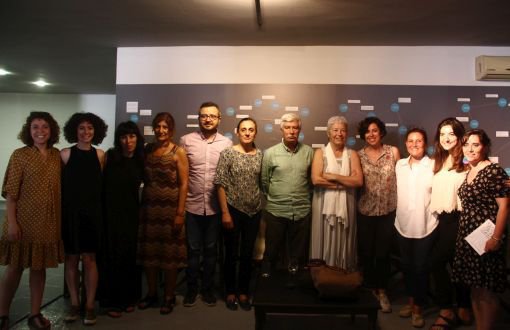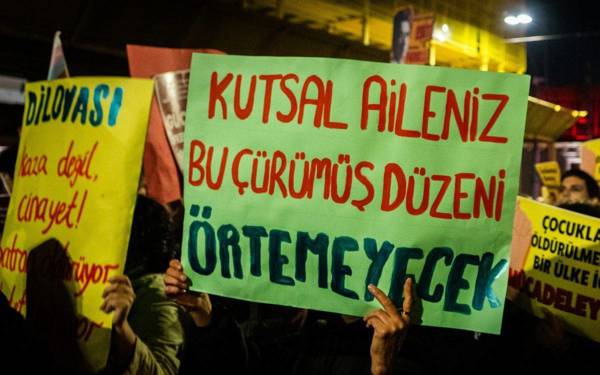Click to read the artilcle in Turkish / Kurdish
The discussion panel of "Language in the Context of Multiculturalism and Diversity in the Newsroom", which was jointly organized by the IPS Communication Foundation and Bilgi University's Study Group on Cultures of Turkey, was held in İstanbul on June 15.
The panel discussion was the second event that was held within the frame of "Going After a Language - Struggle for the Mother Tongue in Cultural Sphere from the 90s to Today" exhibition and moderated by IPS Communication Foundation Chair Nadire Mater.
Speakers of the panel were communication's expert Assoc. Prof. Esra Arsan, media ombudsperson Faruk Bildirici, journalists Demet Bilge Erkasap, Semra Kardeşoğlu from the daily BirGün and Zülfikar Ali Aydın from Habertürk.
In her opening speech, Mater emphasized the importance of cultural diversity in the newsroom and underlined that the structure in the newsrooms contributes to news production. "When I make a brief search about diversity on the Internet, I see that it is only perceived as a 'woman's' issue," Mater indicated further and added that the lack of "multiculturalism and multilingualism" in most newsrooms is not brought up to agenda.
Arsan: Cultural diversity is not reflected in newsrooms
Taking the floor first, Assoc. Prof. Esra Arsan said, "Turkey is a multicultural society, but this multiculturalism, languages and cultures are hidden within the society. They have not been reflected in the newsrooms yet."
"The media representation of minorities with their ethnic and religious identities is a problematic area in Turkey. Likewise that of the Kurds, Alevis and LBGTI+ identities," Arsan stated further and emphasized that in addition to their representation in the news, the representation of minorities or Others in popular media is problematic as well.
Bilge Erkasap: Minorities should be represented in newsrooms
Taking the floor after Arsan, journalist Demet Bilge Erkasap also made the following remarks:
"People from different cultures are subjected to discrimination in this country, they cannot benefit from the rights the state is obliged to grant.
"They cannot have access to justice or the right to health. The duty of the journalist is to reflect it.
"And there is also the beauty of living together, the food and neighborliness... They can be reported in the news in both ways.
"However, several newspapers have been closed now and news websites make news based on clicks. With such a media, how can a problem experienced by, say, Circassians be reported in the media?"
Bildirici: Some issues were easier to report during the resolution process

Speaking after Bilge Erkasap, media ombudsperson Faruk Bildirici referred back to the resolution process and stated the following:
"Some issues were easier to report in the resolution process [of Kurdish Question]. We started to explore their literature. They were reported by their own media organizations. Kurdish literature started to spread and be read.
"In the current situation, we have fallen way far from the resolution process. The words that were used during the resolution process can never be used today. 'How will we pronounce the PKK?', 'Will we say terrorist head or not?'... We could discuss them in [daily] Hürriyet, but you cannot discuss them today in those newspapers."
Kardeşoğlu: How do we make news on Syrians without knowing their language?

In her speech, daily BirGün editorial consultant Semra Kardeşoğlu focussed on the situation of Syrian refugees in Turkey:
"When I was told 'language and journalism', it was the Syrian refugees who came to my mind first. The number of refugees is now almost 4 million. A growing hostility has developed against them. What effect do the media have in that environment?
"I think it is where we encounter the problem of language. How do we make news on Syrians without knowing their language?
"Let's say, a judicial incident occurs. What is done? They probably make news based on their and the opposing party's deposition to the police, which results in a one-way flow of information and news."
Aydın: Attitude towards minorities is problematic

Lastly, Habertürk Newsroom Manager Zülfikar Ali Aydın said,
"All through my career in journalism, I have never heard someone saying 'Let's hire somebody form such and such cultural group' or 'Let's hire a person from this or that minority group'."
"But, I heard that there were offers to hire people who were close to a certain political party, community or groups. All in all, it is the reality. It is never said, 'Let's have a Kurdish, Armenian, Roma, Gypsy reporter.'
"There was serious discrimination against the Syrians last week. As we had seen it all, we had to report it in some way. We sent a reporter to write impressions, talk to people on the street and tell them it was discrimination.
"However, we cannot find a single person on the street, in bazaar who said that it was discrimination. After all is said and done, we live in a country with a problematic attitude towards the Others and minorities." (EMK/AÖ/SD)










